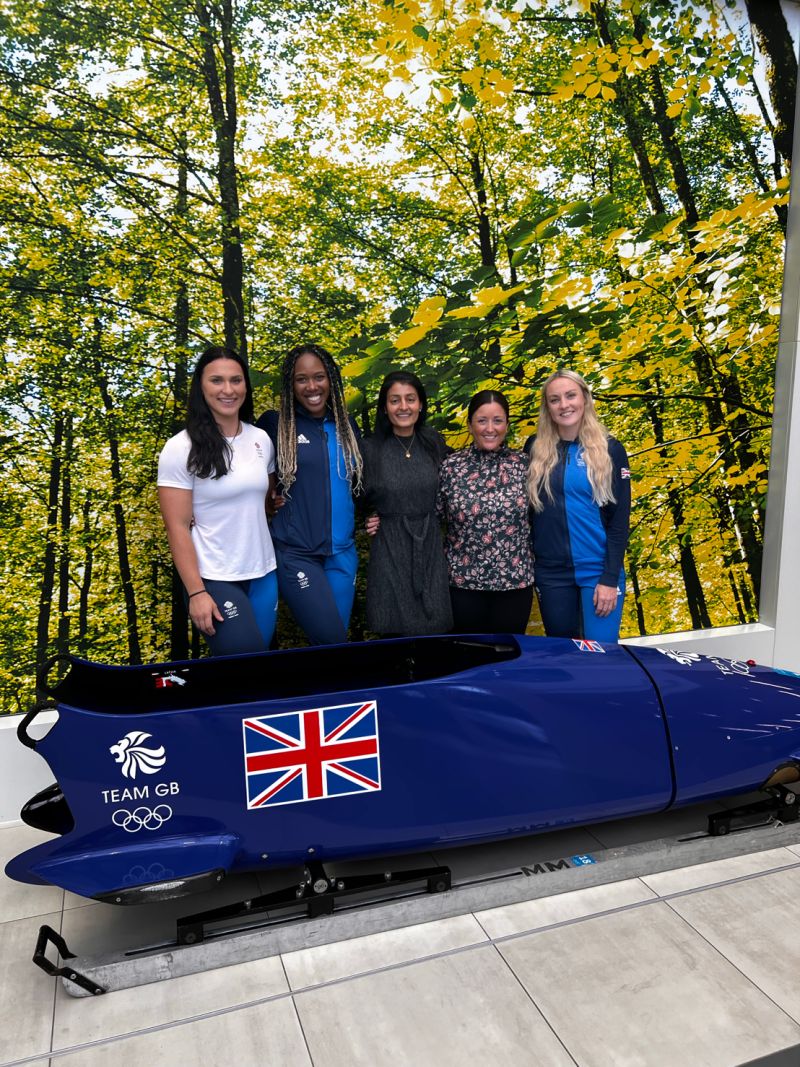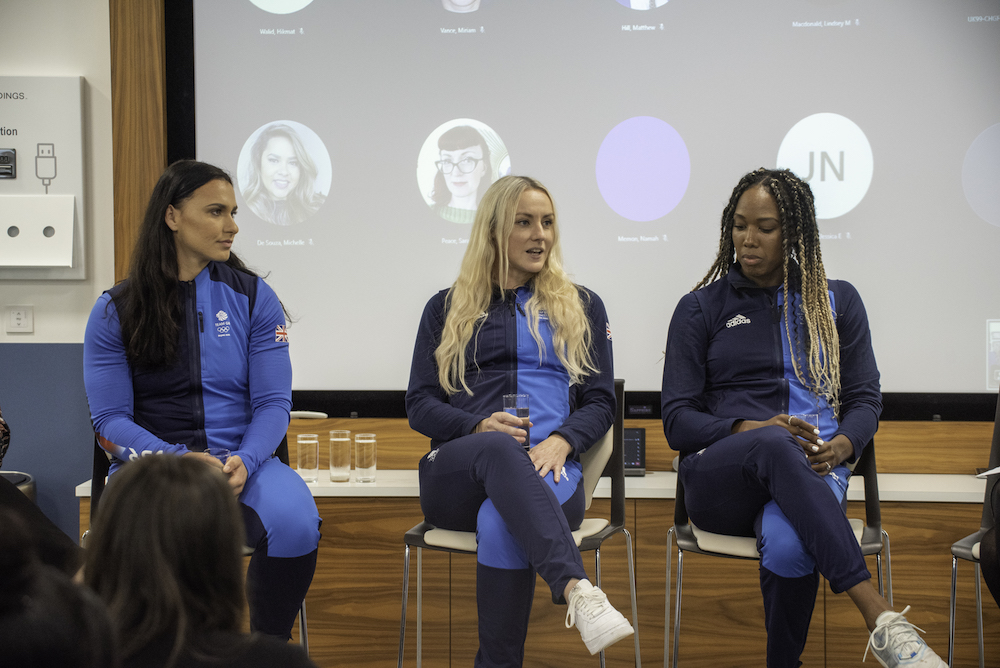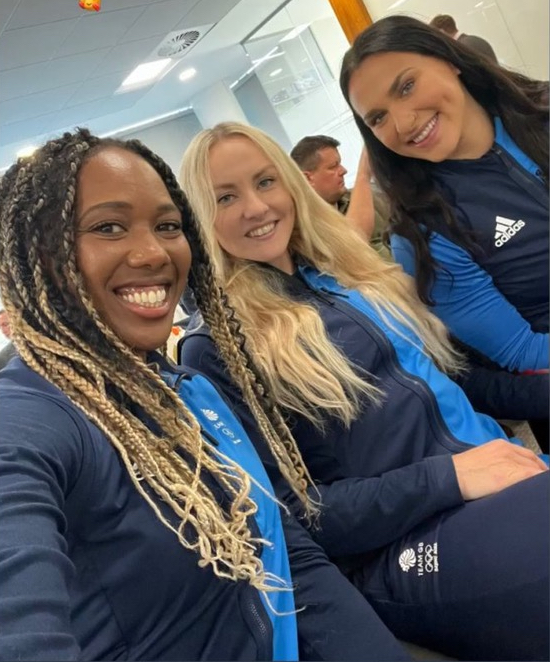Three female Olympians discuss the qualities it takes to succeed

Adele Nicoll, Montell Douglas, Sonya Lawson, Jane Williams and Mica Mcneil pose in front of the women's bobsleigh
The Women's Initiative Network invited three inspiring women from the GB bobsleigh team – Adele Nicoll, Mica Mcneil and Montell Douglas – to take part in a panel and networking event to inspire women at Enterprise.
They panel was led by Sonya Lawson (European Vehicle Services Manager) and the athletes were joined by Enterprise panellists Caroline Howarth (Corporate Business Manager) and Jane Williams (National Account Manager).
The women athletes openly discussed the difficulties they faced in sport and especially the challenges for women competing in a traditionally male dominated environment.
"The reality is that in sport, women sometimes need to work harder even to get to the same ‘starting line’ as men."
The reality is that in sport, women sometimes need to work harder even to get to the same ‘starting line’ as men.
The bobsleigh competition started for men in the 1920s, but it was only in 2002 when women were first invited to compete as it was seen as too dangerous for females to take part.
Even now, women are only allowed to compete in a single person event – monobob – which is only open to women, as well as a two-woman event. Men are allowed to compete in a two- and four-person format, so there is still an ongoing conversation around enabling women to compete on the same terms as men.
The differences can extend to funding. In 2017 despite qualifying to compete, the female bobsleigh team experienced a funding cut only five months out from the Winter Olympics. There was budget to fund three men’s teams but not enough to fully fund one female team.

Adele, Mica and Montell
"resilience comes from recovering from struggles and high-pressure situations"
Many of the female athletes contemplated retiring. Despite their disappointment they started fundraising themselves using social media and corporate funding.
This was an important moment, when they decided to continue instead of giving up, despite the odds, and teaching that resilience comes from recovering from struggles and high-pressure situations.
Discrimination in other countries adds another dimension to being a female athlete, and the women spoke about the challenges of training and competing in the face of different notions of professionalism and behaviour. Many female athletes give up competing in high pressured sports because they feel uncomfortable having to work and deal with environments that they find toxic.
They talked about tackling racism and sexual aggression in sports culture, especially when teams train and compete away from friends and family often for prolonged periods of time. These issues have sometimes led to pressure from loved ones to leave their beloved sport and change career paths. Creating a unique and strong team bond is an essential part of gaining the deep inner strength required to keep going and to succeed.

Montell, Mica and Adele
The women athletes communicated a positive message around fear. Fear is part of a healthy process and can be used to break down problems until you find a solution. We are problem solvers, and we should be able to find a solution. Everyone doubts themselves, it’s normal – acknowledge that, move on, and push forward.
The pressure to prepare to get to the position of winning is paramount. The women’s bobsleigh team experienced significant differences between the conditions in which they were training and the experience of the men’s team.
"Fear is part of a healthy process and can be used to break down problems until you find a solution"
Adele, Mica and Montell are committed to increasing visibility for the sport, and regularly give talks to young females at school about their experience and learnings around how to compete in a male dominated world:
- Set big goals and have big dreams
- Manage your expectations as the journey towards your goals is not a straight line to success – do not be disheartened!
- Reach out to more females as someone will have experienced something similar themselves – or ask other women to suggest someone they know who has
- Surround yourself with the right people
- Embrace who you are, your confidence will then shine through
If you are interested in a career with Enterprise, please visit our recruitment website at careers.enterprise.co.uk
